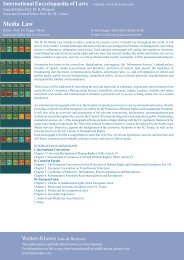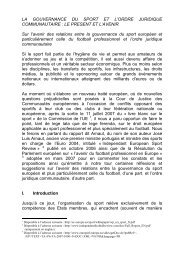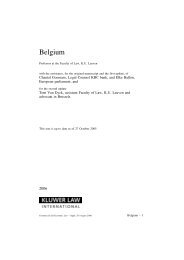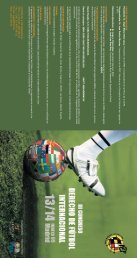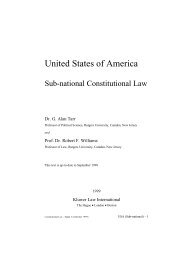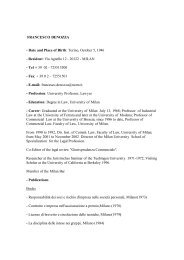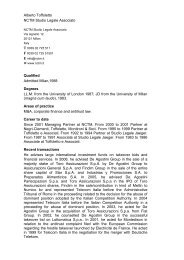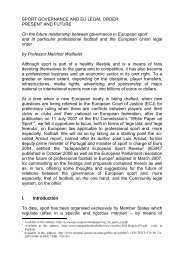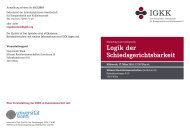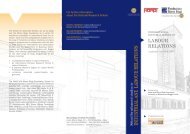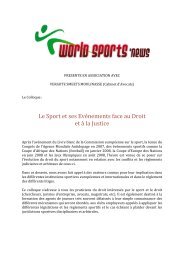Denmark - International Encyclopaedia of Laws
Denmark - International Encyclopaedia of Laws
Denmark - International Encyclopaedia of Laws
Create successful ePaper yourself
Turn your PDF publications into a flip-book with our unique Google optimized e-Paper software.
116–120Part I, Ch. 2, Scope <strong>of</strong> ApplicationV. Financial Aid from Public Authorities116. Section 11a <strong>of</strong> the Competition Act authorizes the Competition Council tocompel undertakings to return financial aid provided by a public authority if the aidhas restriction <strong>of</strong> competition as its direct or indirect object or purpose and is contraryto public regulation. According to the preparatory works, the term ‘aid’ in section11a is to be given the same meaning as ‘aid’ in Article 107 TFEU (formerlyArticle 87 EC). As such, aid means any direct or indirect financial support, andincludes aid in forms other than cash.117. Whether or not the aid is contrary to public regulation will be determinedby the minister in charge <strong>of</strong> the public authority that provided the aid.118. Section 11a was introduced by an amendment to the Competition Act in2000, and was subsequently further amended to its current wording in 2007. Thenew provision expanded the scope <strong>of</strong> the Competition Act. Until then, the Act hadonly governed commercial enterprises, but with the amendment the CompetitionCouncil was authorized to intervene in the provision <strong>of</strong> financial aid to undertakingsfrom public authorities as well.119. Section 11a is inspired by the EU state aid provisions (Articles 107 to 109TFEU) and effectively implements these into Danish legislation. Consequently, itcould be expected that the provision would be <strong>of</strong> little practical relevance becausethe EU provisions will usually apply. However, administrative practice has shownthat section 11a is relevant in connection with small-scale and local cases <strong>of</strong> unlawfulstate aid that Articles 107 to 109 TFEU would not have applied to. For example,see the Competition Appeals Tribunal decision <strong>of</strong> 22 May 2006. 1 In that decision,the Tribunal found that a local Danish municipality, Morsø Kommune, had violatedsection 11a by undercutting competitors in the provision <strong>of</strong> home care services. Themunicipality was found to have been charging citizens lower prices for home careservices provided by its own service provider than the prices charged for servicesprovided by its private competitors. The indirect aid was found to restrict competitionbetween home service providers. The Tribunal ordered Morsø Kommune tocompensate the private service providers for the losses they incurred due to theillegal aid.1. Morsø Kommune mod Konkurrenceankenævnet. In English: Morsø Municipality v. CompetitionAppeals Tribunal.§4. APPRECIABLE EFFECT AND DE MINIMISI. The De Minimis Rule120. The general prohibition on restrictive agreements in section 6 <strong>of</strong> the CompetitionAct does not apply to certain agreements <strong>of</strong> minor importance. Accordingto section 7 <strong>of</strong> the Act, agreements are considered de minimis and therefore not subjectto the prohibition if:40 – <strong>Denmark</strong> Competition Law – (February 2011)



